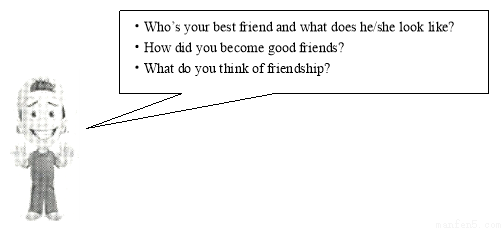
Monkeys That Lend a Hand
Have you ever dropped something while both your hands were full and wished you had another hand to pick it up? Some people cannot use their arms or hands to do simple jobs because they have been hurt or are sick. Usually they depend on other people to help them. This problem made two women think about how they could help people who cannot do everyday things for themselves.
In 1979 Dr. M. J. Willard and Judi Zazula began looking at some small, friendly monkeys called capuchin monkeys. These monkeys have hands like people’s hands, and they like to be around people. Could the monkeys be trained to do things that people could not do for themselves? The women wanted to find out if their idea would work. So they spent a long time training some capuchin monkeys, and they found that these animals made great helpers.
Today the first step in training a young capuchin monkey is to have it stay home with people and watch how they live. The monkeys learn how to behave around people. Then the monkeys go to a special school in Boston. There they learn how to do many easy chores. They are taught how to carry food and pick up dropped objects. They learn how to open doors and turn light switches on and off. They even learn how to use CD players and VCRs.
After a monkey finishes its training, it goes to live with a person who needs help. If the person wants a light turned on, the monkey does it. If the person needs a glass of water, the monkey brings it. If the person wants to watch TV, the monkey turns it on. The monkey becomes a very important part of that person’s life. In fact, the monkey often becomes the person’s good friend.
1.Capuchin monkeys are people’s great helpers because ______________.
A. they learn more quickly than other monkeys
B. they have hands like people’s hands
C. they like to watch how people live
D. they are small, cute and naughty
2.The underlined word “behave” means to______________.
A. learn skills B. act well
C. avoid hurts D. provide help
3.What is the passage mainly about?
A. How capuchin monkeys can help people do things.
B. Why capuchin monkeys’ hands are like people’s hands.
C. Where scientists train capuchin monkeys to help people.
D. When people found capuchin monkeys were helpful.
科目:初中英语 来源:2015届南京市八年级下期末英语试卷(解析版) 题型:其他题
How to beat sadness
We all have days when we are down, tired and unhappy. That’s OK. You need days like this, or how would you know you are happy? You’ll enjoy your good days even more when you have a few bad days. Even if sadness is a part of life, let’s try to make it small. Here are a few simple ways to help you feel better when you are feeling sad.
1. Stand up straight and this helps your energy flow (流动). When your energy is flowing freely, you can flow too.
2. Smile! It’s easy to do and have good results. This way can not only leave you in a good mood but also bring others a good mood.
3. Listen to music. It can be your favorite music. Some kinds of music work better than others, so try and find out what kind of music works the best for you.
4. Take some ‘me’ time. You can find pleasure in reading a book, watching a sunrise or having a hot bath, or something like that.
5. Exercise. Even something as simple as taking a walk will get your blood flowing. It is a great way to clear your mind of anything that makes you sad.
These ways will cheer you up when you are down, but don’t just use them when you are sad. Try and practice them every day to make them a habit. You will be surprised to learn that these simple ways will keep your sadness away. But if you are in a deep depression (沮丧), go to see a doctor.
How to beat sadness | |
Opinions | It is OK to feel down, 1. and unhappy. It is possible to make sadness a small 2. of life. |
Simple 3. to cheer you up | Stand up straight so that your 4. can flow freely. |
5. at others because it can bring you and others a good mood. | |
Listen to your 6. music because it works the best. | |
7. pleasure in everyday life, such as watching a sunrise. | |
Take a walk and you can clear your 8. of sad things. | |
Suggestions | Try to make these simple ways a 9. . Go to see a 10. when you are in a deep depression. |
查看答案和解析>>
科目:初中英语 来源:2015届北京市西城区八年级下期末英语试卷(解析版) 题型:单项填空
I don't like cheese, because it too strong.
A. sounds B. looks
C. feels D. smells
查看答案和解析>>
科目:初中英语 来源:2015届北京市八年级下期中英语试卷(解析版) 题型:单项填空
Betty will ring me up as soon as she _____ in Shanghai.
A. arrive B. arrives
C. arrived D. will arrive
查看答案和解析>>
科目:初中英语 来源:2015届北京市东城区(南片)八年级下期末英语试卷(解析版) 题型:书面表达
文段表达(10分)
根据题目要求和英文提示词语,写出意思连贯、符合逻辑、不少于50词的短文。所给英文提示词语仅供选用。
假如你叫李华,最近和美国朋友Jim通过邮件谈论各自的好友,请你根据他的问题回复邮件。
提示词语:tall, kind-hearted, help, encourage, important

|
To Jim From Li Hua Subject My best friend Hi!Jim, I’m glad to hear from you._____________________________________________________ ______________________________________________________________________________ ______________________________________________________________________________ ______________________________________________________________________________ Yours , Li Hua |
查看答案和解析>>
科目:初中英语 来源:2015届北京市东城区(南片)八年级下期末英语试卷(解析版) 题型:单项填空
―Can you tell me ____________the prize, Tom?
―Last year.
A. when you got B. when did you get
C. when will you get D. when you will get
查看答案和解析>>
科目:初中英语 来源:2015届北京市东城区(南片)八年级下期末英语试卷(解析版) 题型:单项填空
―Tomorrow is Sunday, shall we go to the World Park?
―Oh, no, I don’t want to go there again. I ____________ it twice.
A.have visited B. visited
C. will visit D. Visit
查看答案和解析>>
科目:初中英语 来源:2015届内蒙古八年级下期末英语试卷(解析版) 题型:单项填空
I am looking forward to ____ from you.
A. hear B. heard
C. hearing D. hears
查看答案和解析>>
科目:初中英语 来源:2015届内蒙古呼和浩特市八年级9月月考英语试卷(解析版) 题型:书面表达
以 My favourite sports 为题写一篇文章,介绍你最喜欢的运动,并说明喜欢的运动的种类,还有原因及你的受益,字数不少于 70字。、
70字。、
查看答案和解析>>
湖北省互联网违法和不良信息举报平台 | 网上有害信息举报专区 | 电信诈骗举报专区 | 涉历史虚无主义有害信息举报专区 | 涉企侵权举报专区
违法和不良信息举报电话:027-86699610 举报邮箱:58377363@163.com